The trading and bartering system in Baldur’s Gate 3 has a few tricks built into the mechanics that you can learn early on to your advantage. On this page we’ll show you how to donate items to specific merchants so that you can improve your attitude (aka relationship) with them, how to split items from your inventory so you can sell a specific amount at any given time, and the basic differences between trading and bartering in BG3.
Arron the Merchant in Baldur’s Gate 3.
How to Donate Gold and Items With Traders & Merchants¶
The first thing you might be wondering about merchants in Baldur’s Gate 3, is how to improve your attitude with them. You can see the current attitude rating that you have with any specific merchant in the bottom right of the screen once you open up trading or bartering with them, as you can see in the screenshot below. The default value may be different for each merchant, depending on who they are and who your primary character is, especially in relation to their origin race, background, religion, and other distinctive features which might cause a rift between you.
Donate Gold or Valuable Items in BG3¶
However, even if the attitude of a merchant is initially negative towards you for whatever reason, it doesn’t take much effort to improve their view of you. All you need to do is donate items or gold, which can be done via the bartering system. The more gold you donate, or the more valuable the item(s) that you donate, the more significant the improvement in attitude will be. If you want to improve your relationship with a specific merchant quickly, you should donate items that are worth at least 100 gold. You should find plenty of these in the form of equipment and weapons that you won’t necessarily be using.
In our testing, it took somewhere between 600 - 800 gold in the total value of items donated to reach an attitude rating of 100 with a specific merchant, with a starting value of 0. It shouldn’t take you too long to establish good relations with new merchants, especially if you’re finding a lot of valuable loot from exploration or battles that you don’t necessarily have a good use for. You may want to save at least 1000 gold before you start donating, though, to make sure that you have enough to purchase any essentials such as potions, traps, and tools.
(1 of 2) You can see your current attitude rating by hovering over the bar in the bottom right, or switch between trade and barter in the top center.
You can see your current attitude rating by hovering over the bar in the bottom right, or switch between trade and barter in the top center. (left), You’ll get a warning before donating items to warn that you’ll get nothing in return. (right)
How to Get Cheaper Prices from Traders in Baldur’s Gate 3¶
If you’re wondering why you might bother to donate gold and items to specific merchants in order to improve your attitude with them, the short answer is: long term profit. In theory, the better your attitude rating with a specific merchant, the cheaper their items will be to purchase in the future. Not only that but you should also be able to sell your items to them for a greater profit than you would otherwise. This means that over time, you can earn back the gold you lost by donating items to improve your relationship and begin saving with the cheaper purchase and higher sell costs later on.
The amount you save will ultimately depend on how often you think you’ll be interacting with a specific merchant. As a general rule, you’re more likely to interact with merchants who are stationed in centers of civilization, such as those at the Emerald Grove in the starting area of the game. You’ll encounter more large settlements as you progress through the story, and when you do it’s better to start donating sooner rather than later. You may lose out on some gold in the short term, but you’re likely to make more of a profit in the long run.
It’s worth noting that most merchants will have their gold and stock replenished after each long rest. You will often find new items available to buy or barter at this point, so it’s a good idea to revisit merchants often. This also means that you can return to merchants each day to sell more items to them, since it’s likely that you’ll deplete most of their gold when you sell a lot of items from your adventures all at once.
What’s the Difference Between Trade and Barter in BG3?¶
The difference between trading and bartering in Baldur’s Gate 3 is simpler than you might think. In essence, it’s a matter of preference. The cost of items from a specific merchant will be the same whether you trade with them in exchange for gold, or barter with them in exchange for items.
For example, you might see a nice breastplate on offer for 260 gold from a merchant. You can choose to purchase this outright for 260 gold in the Trade mode, or you can choose to enter the bartering mode instead. If you do the latter, you’ll need to offer items that are of an equivalent value to 260 gold. If you try to barter for the breastplate using items that are of a lesser value, the merchant won’t be happy.
(1 of 2) Arron is the first merchant that you’re likely to encounter in BG3, near the Emerald Grove.
Arron is the first merchant that you’re likely to encounter in BG3, near the Emerald Grove. (left), You’ll find Arron just west of the Emerald Grove. (right)
The worst that can happen if you try to barter items which aren’t of equivalent value, is that the merchant will refuse the offer. If you still want to barter your items for a breastplate but you don’t have anything else to offer other than gold to reach its value, you can press the scales button just above the Barter button at the bottom center of the screen. This will automatically balance the bartering by taking the remaining gold required from your inventory and adding it to the bartering offer.
Why Choose Bartering Over Trading in BG3?¶
For most people, the simpler method for exchanging goods with merchants in BG3 is by using the Trade function rather than the Barter function. Here you can simply drag any item that you want to purchase from the merchant’s inventory to your own, and the required gold will be automatically taken. The same goes for selling, just the other way around. The only reason why you might want to use the bartering mechanic (other than personal preference) is for when you’re donating items with the explicit purpose of improving your attitude with a specific merchant.
How to Split Items While Trading in Baldur’s Gate 3¶
If you’re not familiar with inventory systems in PC gaming, you might be wondering how to split items that you have a number of stacked in your inventory. This is most common for scrolls and potions, and the quickest way to do it is by holding 
You can split items while trading by holding Shift as you drag the stack across to the merchant’s inventory.
More Baldur’s Gate 3 Guides¶
If you want to know more about how some of the basic systems in Baldur’s Gate 3 work, be sure to check the pages linked below!
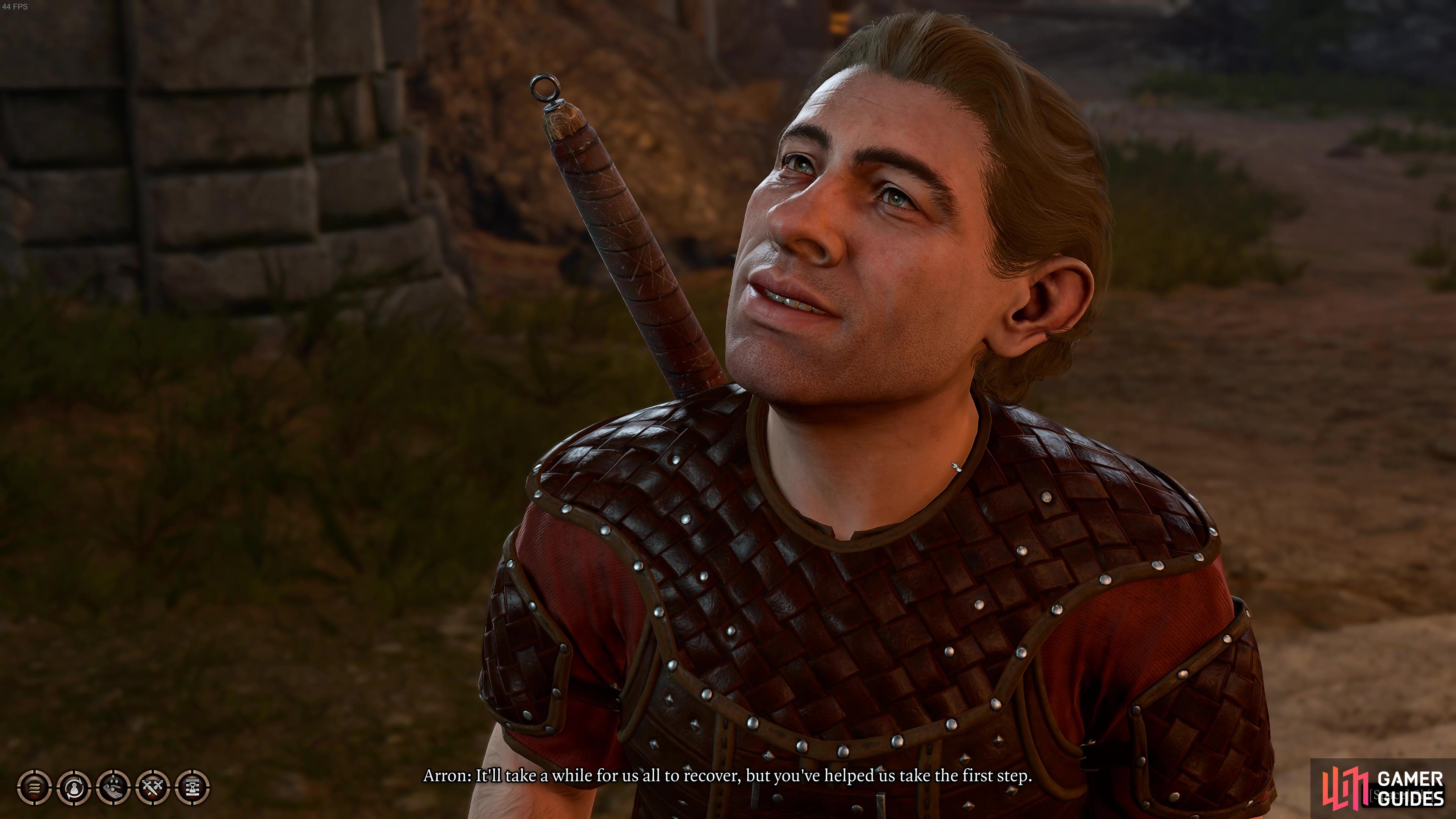
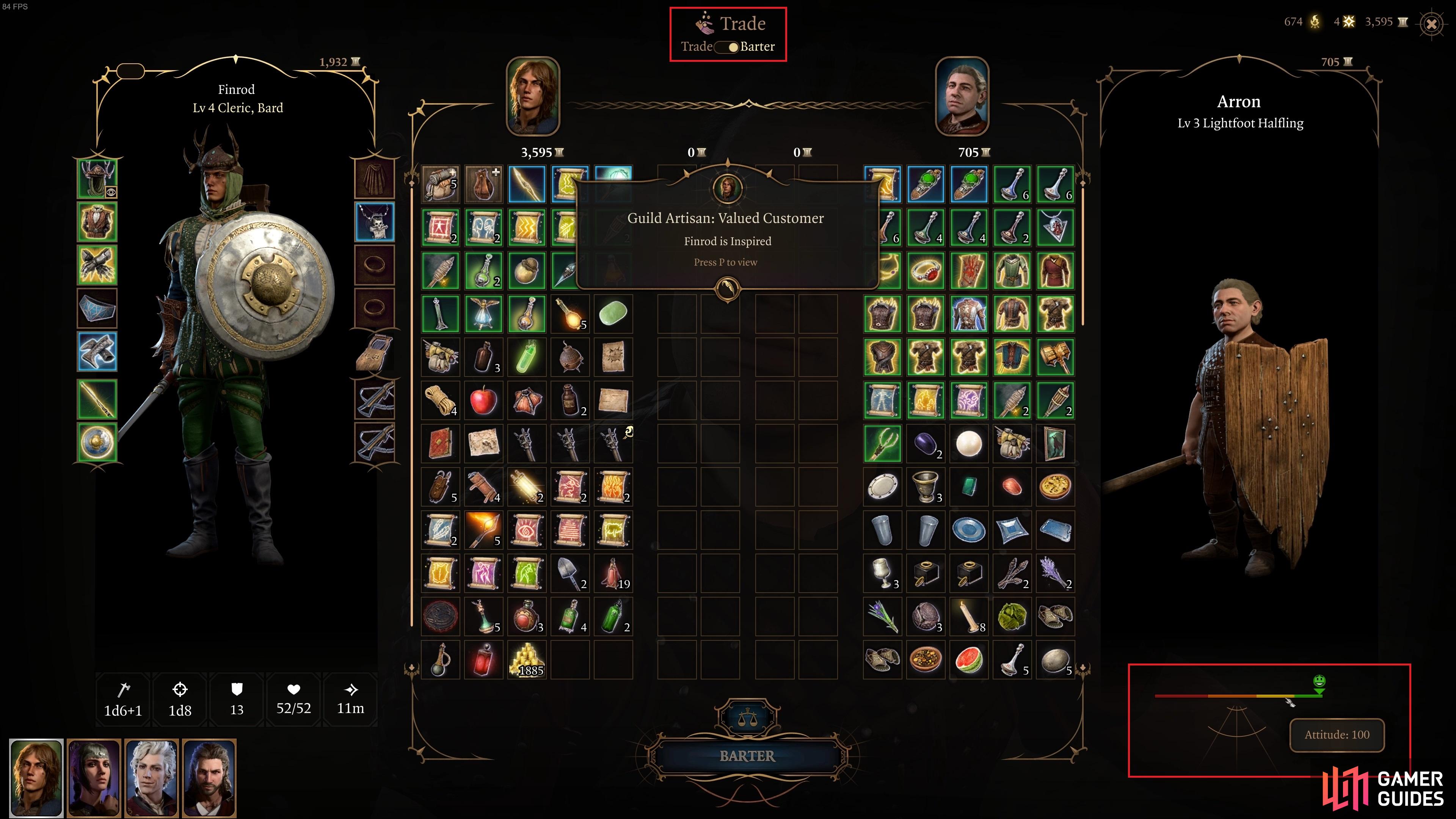
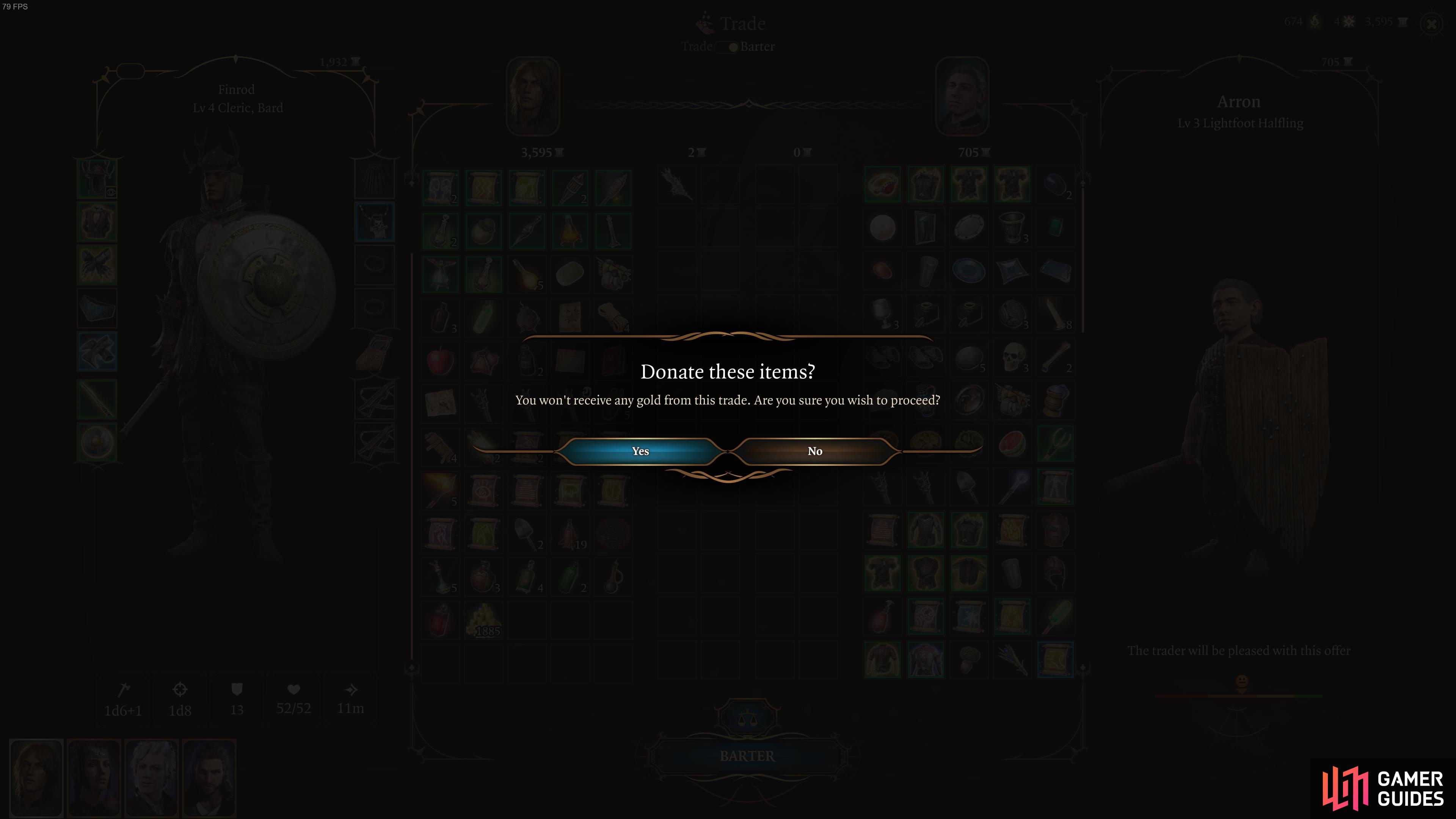
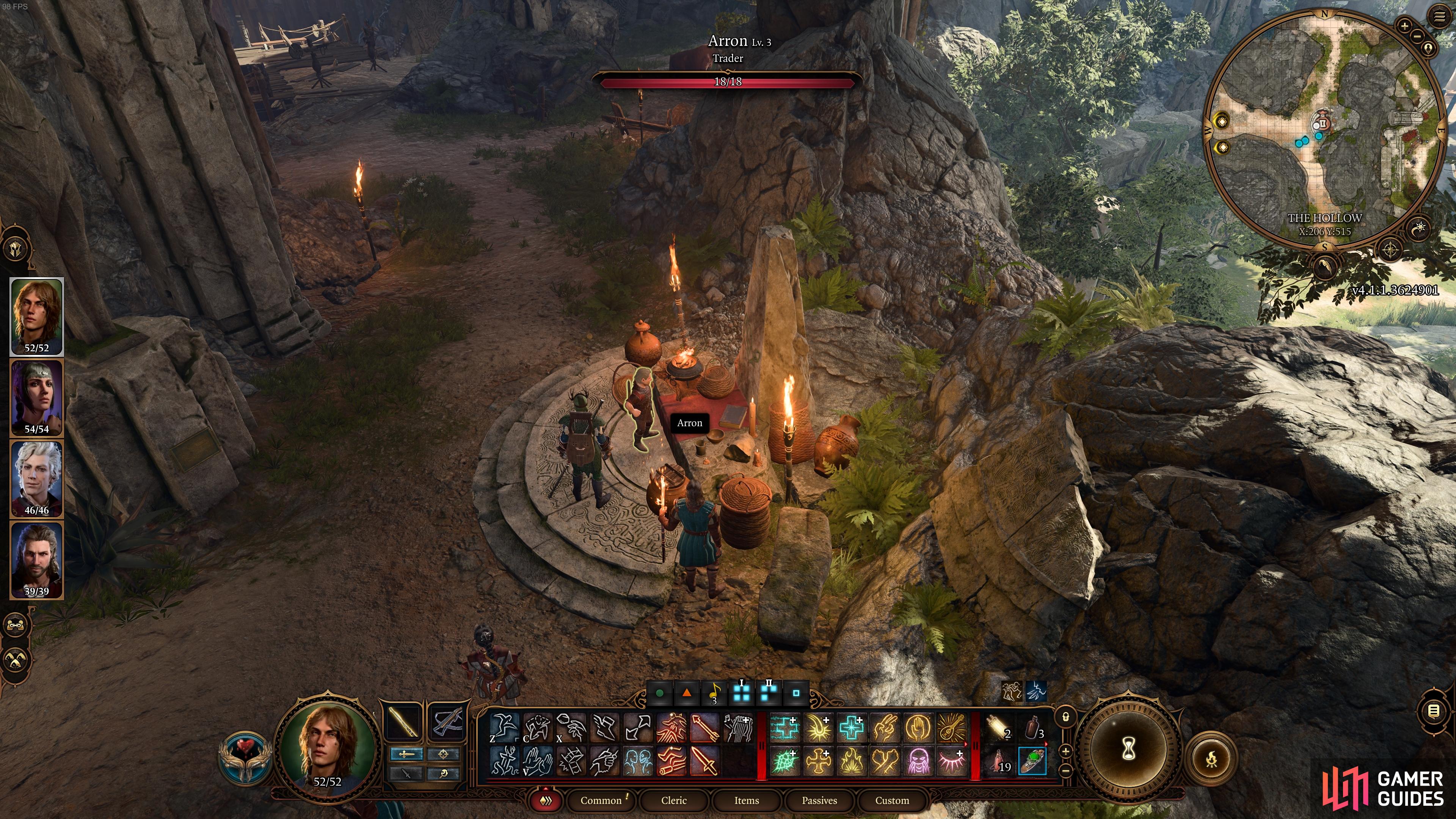
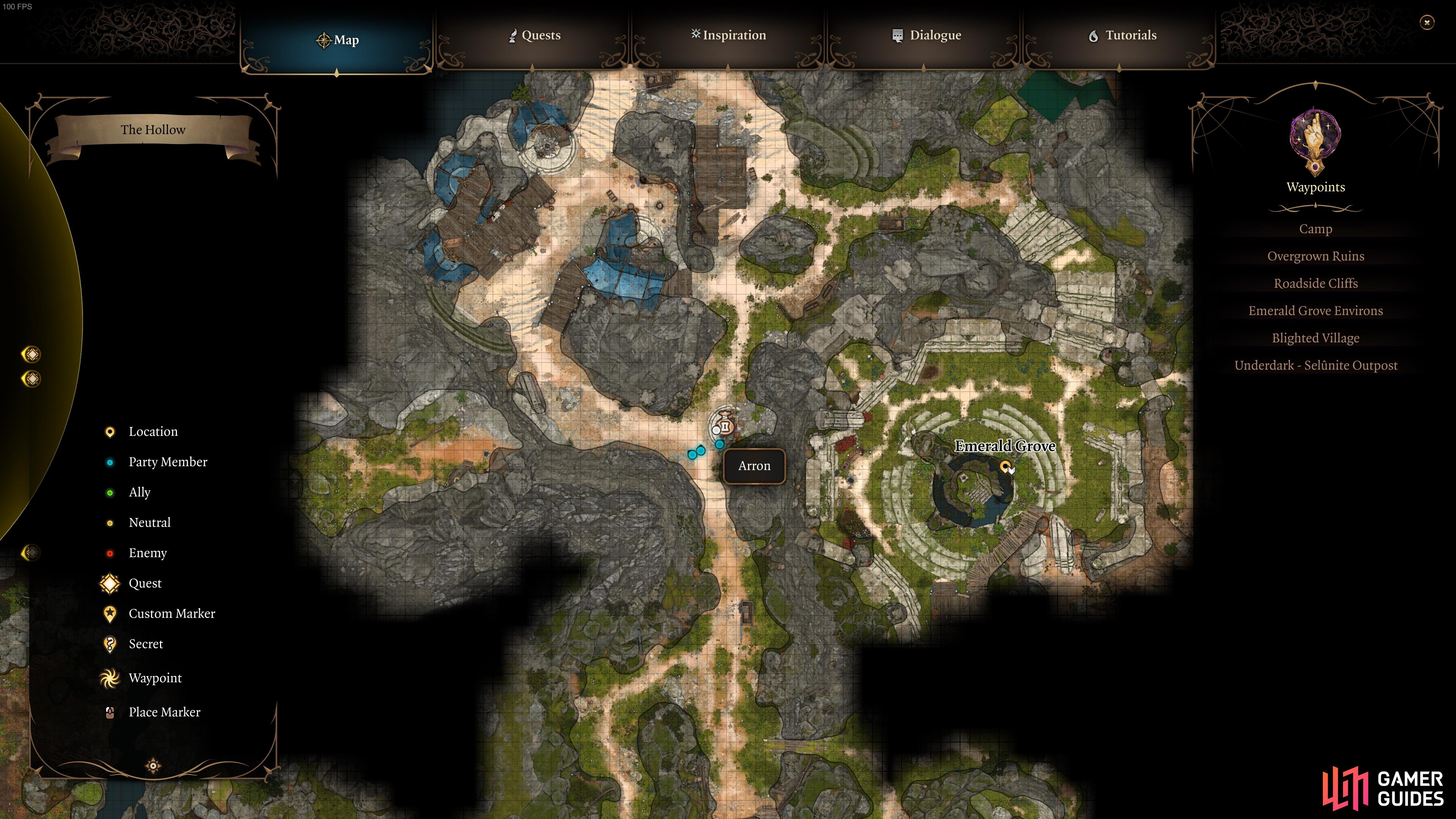
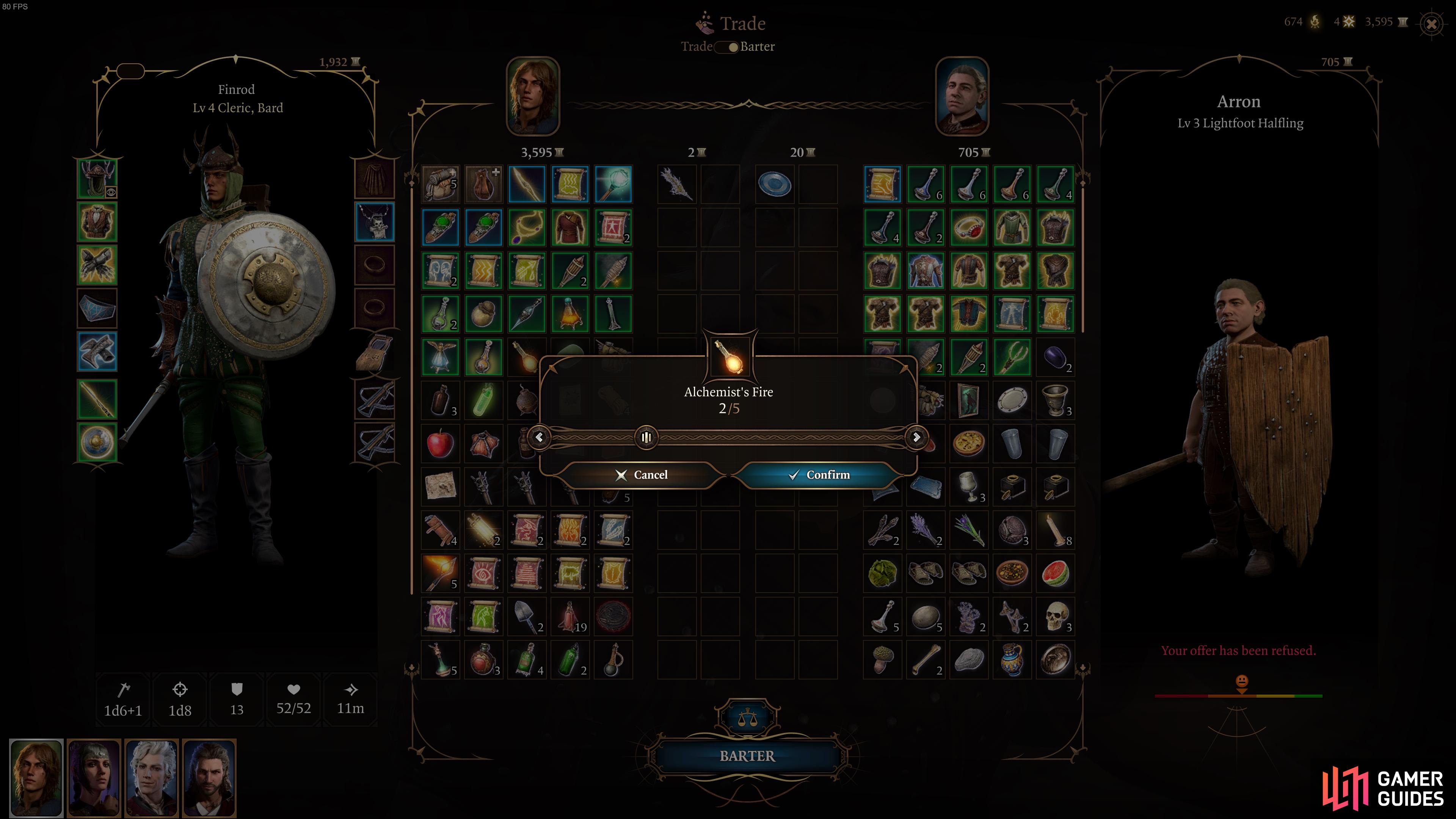

 Sign up
Sign up
No Comments